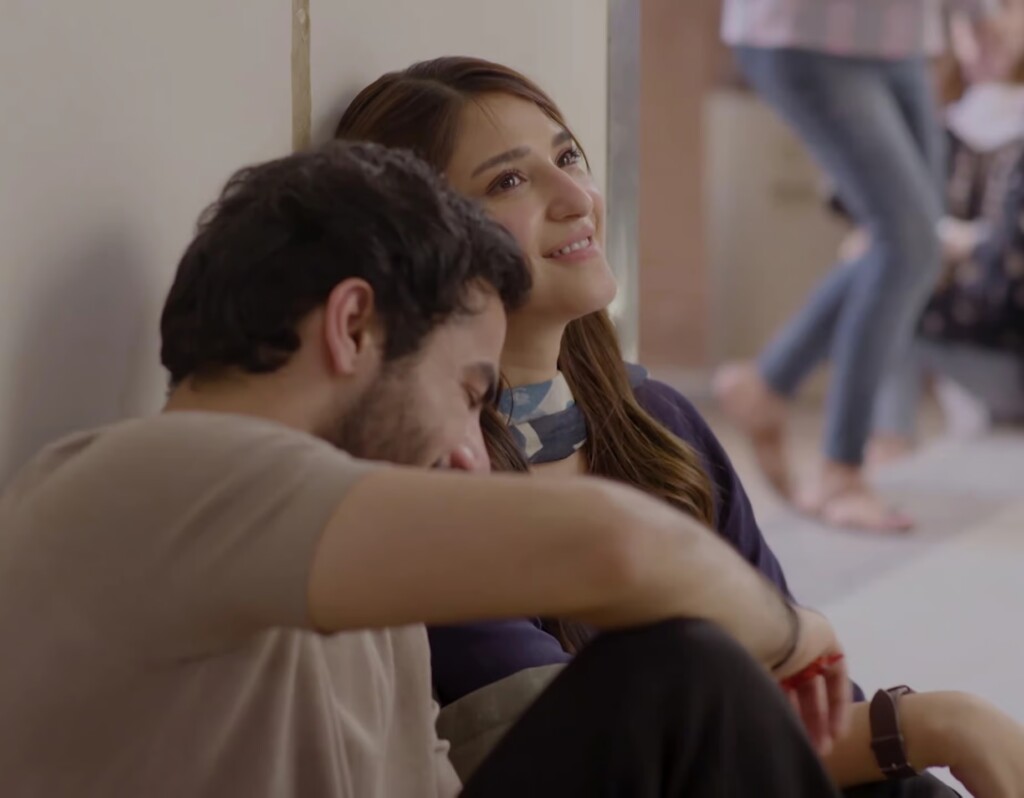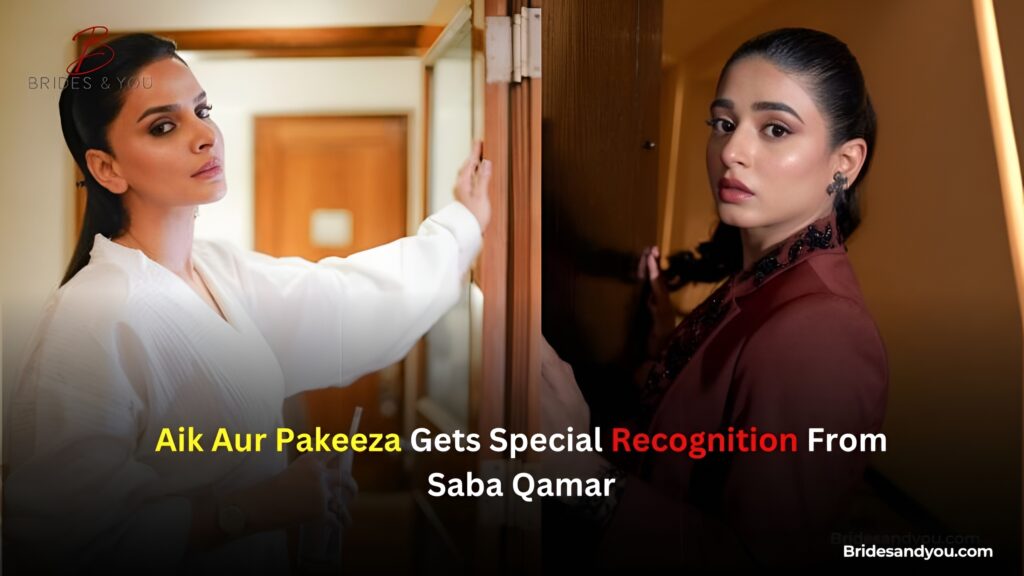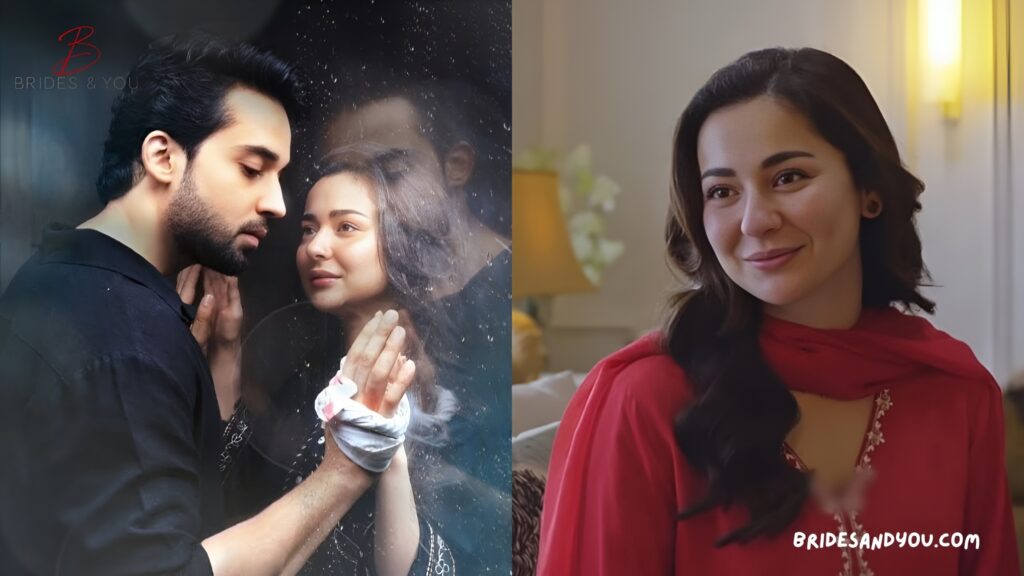Now Reading: Ramsha Khan Defends Romantic Scenes in Biryani Drama Amid Audience Criticism
-
01
Ramsha Khan Defends Romantic Scenes in Biryani Drama Amid Audience Criticism
Ramsha Khan Defends Romantic Scenes in Biryani Drama Amid Audience Criticism

The Pakistani drama Biryani, starring Ramsha Khan, Khushhal Khan, and Sarwat Gilani, has become a major topic of discussion among TV audiences. While the show continues to perform well in terms of ratings and YouTube views, it has also sparked debates about the portrayal of romance in Pakistani dramas.
Recently, the lead actress, Ramsha Khan, came forward to address the criticism surrounding certain romantic scenes in Biryani. Her response not only shed light on her personal viewpoint but also ignited an important conversation about realism in entertainment and the boundaries of cultural acceptance.

The Drama Biryani Wins Hearts but Sparks Debate
The storyline of Biryani revolves around Nisa (Ramsha Khan) and Meran (Khushhal Khan) two university students whose love story begins in a simple, relatable way. Their chemistry has been appreciated by many viewers who found their connection natural and refreshing.
However, some segments of the audience criticized the show for depicting what they described as “unnecessary physical closeness.” These viewers argued that such scenes were not in line with traditional Pakistani television values and were “normalizing” behaviors that should remain private.
Despite this backlash, Biryani continues to trend online, showing that many viewers are enjoying the modern and realistic approach of the drama.
Ramsha Khan Speaks Out on the Controversy
In an interview with BBC Urdu, Ramsha Khan defended the romantic scenes, explaining that they were not exaggerated or inappropriate. Instead, she argued that they reflect the reality of modern relationships among young people.
“This is not something outrageous. This is the reality of our society,” Ramsha said. “These things happen in universities and colleges. I have personally witnessed such moments in my own school days.”
She further explained that hand-holding or emotional expressions between couples are normal aspects of student life today, and dramas should have the freedom to portray such moments without facing harsh backlash.
Challenging the Double Standards in Drama Criticism
Ramsha also made a strong point about the double standards in the entertainment industry. She questioned why audiences remain silent when a woman is slapped or mistreated in a drama but react strongly when love and affection are shown on screen.
“Why do we not object when a woman is slapped? Why is it only romance that offends people?” she asked.
Her statement resonated with many fans and fellow actors who believe Pakistani dramas often glorify toxic relationships while condemning natural expressions of love. Ramsha’s bold stance highlighted the need for balance and fairness in audience expectations.
Sarwat Gilani’s Comeback and Drama’s Popularity
Adding more excitement to the drama is Sarwat Gilani’s television comeback. Known for her powerful performances, she plays a significant role that adds depth to the story. Her presence, along with the fresh chemistry between Ramsha and Khushhal, has made Biryani a standout show this season.
The drama’s success shows that Pakistani viewers are open to diverse storytelling styles, even if it challenges old norms. Biryani continues to receive high ratings and strong social media engagement, proving that bold themes can still connect with mainstream audiences when handled tastefully.

The Evolving Landscape of Pakistani Dramas
The controversy surrounding Biryani also opens up a broader discussion about how Pakistani entertainment is evolving. Younger audiences today demand authenticity and modern storytelling that reflects their own lives and experiences.
While traditional viewers may prefer conservative themes, newer generations are ready to embrace change. Shows like Biryani represent this shift focusing on real emotions, student life, and the complexity of modern love rather than purely dramatic or exaggerated plotlines.
Ramsha Khan’s defense not only supports artistic freedom but also encourages society to think critically about what truly deserves criticism violence or love.
Final Thoughts
Ramsha Khan’s brave response to the criticism shows her maturity and commitment to authentic storytelling. By defending her work and the creative choices of Biryani, she reminded everyone that drama is a reflection of society and society itself is changing.
While opinions will always differ, her words encourage viewers to focus on the bigger picture: the need for more realistic, balanced, and thought-provoking narratives in Pakistani television.













